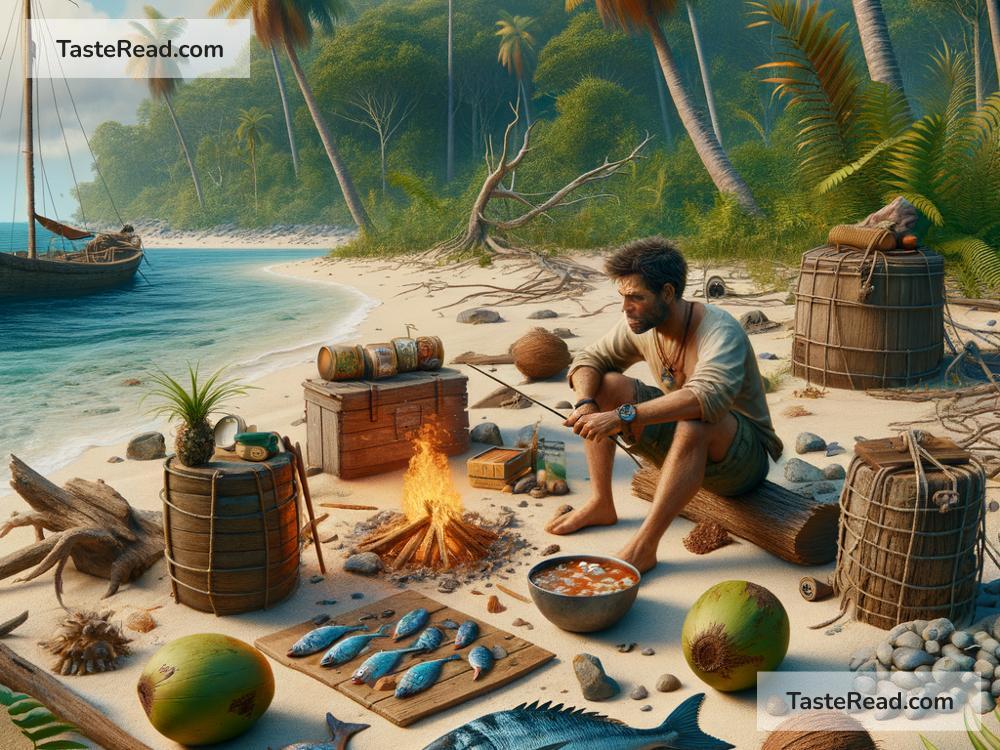The Role of Food in Survival in Cast Away
Survival stories have always fascinated audiences. They show the deep connection between human resilience and environmental challenges. One such story is the 2000 movie Cast Away, directed by Robert Zemeckis and starring Tom Hanks. The film tells the tale of Chuck Noland, a FedEx employee stranded alone on a deserted island after a plane crash. Among many challenges, finding food becomes one of the most critical factors in Chuck’s survival. This blog will explore the essential role food plays in his journey, not just for physical survival but also for emotional endurance and hope.
Why Food Matters in Survival
Food is life. Without it, our bodies cannot function. It gives us energy to think, move, and act. For someone stranded on a deserted island like Chuck, food isn’t as simple as going to the grocery store or ordering takeout. On the island, food represents raw survival—it’s not just about eating but finding, preparing, and sometimes fighting for sustenance.
In Cast Away, Chuck learns this lesson quickly. After washing ashore, his primary instinct is to keep himself alive. He needs food not just to sustain himself but also to keep his mind sharp. When you’re all alone, hunger can cloud your thinking and make survival much harder.
Chuck’s Initial Struggles
When Chuck first arrives on the island, food isn’t readily available. He faces the harsh reality that his surroundings are unfamiliar and unforgiving. There are no pre-made meals, no packaged snacks—just nature. Chuck has to figure out where to find food and how to access it. This is a huge challenge for someone who, like most of us, isn’t trained in survival skills.
One of his first attempts at finding food showcases the dangers of desperation. Chuck tries to open a coconut to drink the water inside but struggles. The hard shell of the coconut isn’t easy to crack without tools. This small but important obstacle reflects the larger theme of survival in Cast Away: every small task can seem monumental when you’re alone and unprepared.
Adapting and Learning
As the days go by, Chuck begins to adapt to his environment. He learns through trial and error, discovering new ways to gather food. He starts catching fish, cracking coconuts more easily, and digging for edible plants. Chuck even figures out how to start a fire, which allows him to cook fish and make it safer to eat.
This process shows how vital food is not only for physical strength but also for building confidence. Every small victory—like successfully catching a fish or making fire—gives Chuck a sense of accomplishment. These moments keep him motivated to survive, even when things seem hopeless.
Food becomes a source of empowerment for Chuck. It transforms from something he wishes for to something he actively works to obtain. This shift reflects the human ability to adapt under extreme circumstances.
Emotional and Symbolic Role of Food
While food is essential for physical survival, it also plays an emotional role in Cast Away. Being stranded on the island isn’t just physically exhausting—it’s mentally and emotionally draining. Chuck misses his old life and the people he loves. The act of finding food distracts him from the pain of loneliness. It gives him purpose and structure in an otherwise chaotic situation.
Additionally, food symbolizes hope. Every meal Chuck eats signifies another day he’s survived. Each day is a step closer to being rescued, even though he doesn’t know when—or if—that will happen.
For example, when Chuck finally catches his first fish, the triumph isn’t just in filling his stomach. It’s a glimmer of hope that he can make it on his own. These moments of survival remind us that even in the darkest times, finding small wins can keep us going.
How Food Challenges Reflect Human Resilience
Chuck’s journey in finding food reflects broader themes of resilience and adaptability. Many survival stories in books and movies revolve around the idea that humans are capable of incredible feats when faced with dire circumstances. Cast Away highlights this idea by showing how Chuck transforms from an unprepared office worker into a resourceful survivor.
Each time Chuck finds food, he is solving practical problems while simultaneously strengthening his will to live. He doesn’t give up, even when the odds are against him. This resilience underscores the importance of not only physical survival but also mental determination.
The Lessons We Can Learn
Though most of us will never find ourselves stranded on a deserted island, Chuck’s story teaches valuable lessons about survival. The role of food in Cast Away reminds us of how interconnected our needs for sustenance, adaptability, and hope really are.
-
Appreciate the Basics: In modern life, food is often taken for granted. But Cast Away reminds us that food is central to life. It’s worth appreciating where our meals come from and the effort it takes to obtain them.
-
Adapt to Challenges: Chuck’s ability to learn and adapt is critical to his survival. In life, we often face challenges that seem overwhelming. His story reminds us to take things one step at a time and focus on solving problems as they arise.
-
Hope Can Fuel Survival: The desire to live and keep going, even when things seem impossible, is central to Chuck’s journey. Food, in the movie, becomes both a physical necessity and a sign of hope.
Conclusion
The role of food in Cast Away goes far beyond simple nourishment. It represents survival, resilience, and the power of human adaptation. Chuck’s journey reminds us of the value of determination and the lessons we can learn from adversity. Whether he’s breaking open coconuts or spearing fish, each act of finding food reminds us of the incredible lengths humans can go to survive—and thrive—even when faced with the hardest challenges.


